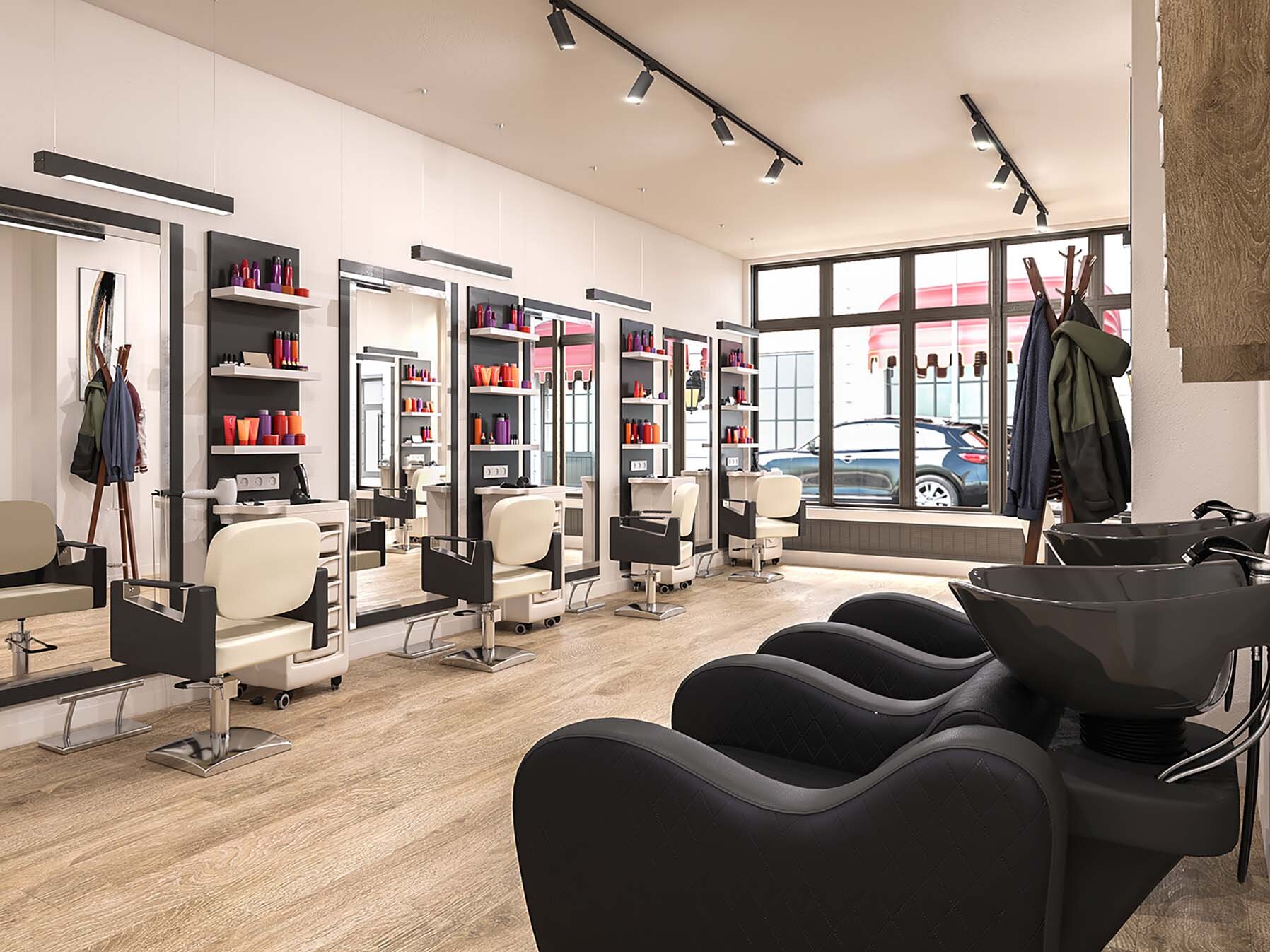Top 4 Booth Rental Salon Rules Every Salon Owner Should Follow
As a salon owner, you want your business to run like a well-oiled machine. So, when it comes to adding an independent contractor to your salon, you want to make sure you know all the top salon booth rental rules to include in the contract before you give anyone new a spot behind the chair.
In this article, you will learn 4 important booth rental salon rules that will help you determine your landlord responsibilities and create a great contract for potential tenants to ensure your salon is kept as clean-shaven as your clients.
To start, let’s briefly talk a little bit more about booth rental salon agreements and what should be included in the contract.
What is a Booth Rental Salon Agreement
Simply put, a booth rental salon agreement is a type of legal contract that gives an independent contractor the right to provide public services, such as cosmetics, hair styling, and barbering, from the chair of an established salon.
In essence, the independent contractor pays the salon owner rent for the booth space and other equipment, tools, or facilities outlined in the agreement. A major advantage of this type of agreement is that the salon owner gets to make a profit from the rent to cover overhead costs, but does not have to actually employ the tenant.
At the end of the day, a booth rental salon agreement is a great way to support the common business interests of both parties involved.
What Should Be Included in the Contract?
Think of a booth rental salon agreement like an office lease. When a potential renter comes in and wants to lease an office room, the landlord has to set up a contract and a lease agreement to legally allow them to use the space.
Furthermore, they will also gather more background information on the renter before they lease them the room, and they will most likely request a security deposit from the moment the tenant signs the contract.
The same scenario applies for a booth rental salon agreement! Keeping those factors in mind, your contract should include the following:
First and last names of both parties
Address of the salon
State of governing laws
Start date
End date
Specifications of all space, equipment, and other resources the renter can use
Rent cost
Periodicity of payment and method of payment
Amount of security deposit
Penalties for late payments
Terms of lease termination
Last but not least, you will also need the signatures of both parties (the salon owner and the independent contractor) signed clearly within the document to validate the contract.
Top 4 Booth Rental Salon Rules You Should Follow
Now that you know what should be included in the contract, it’s time to go over the top 4 most important booth rental salon rules you should follow to make sure you onboard the most reliable tenants.
1. Set Up an Interview with Potential Tenants
First things first, you should always set up a professional interview with the person that wants to rent in your salon.
Here’s why: An interview gives you the chance to meet and talk to the independent contractor in person. This allows you to get a feel for the potential tenant before you sign an agreement with them. A vibe check, if you will.
Plus, it shows the contractor that you have high standards for your salon and want to work with only the best, most trustworthy tenants.
Important Questions to Ask in the Interview:
After listing your salon space for rent and collecting resumes and standard job applications, you’ve set up an interview with an independent contractor that’s interested in a booth rental!
Despite their enthusiasm, you want to make sure they are a great fit before you lease them the space in your salon. So, what should you ask them in the interview?
Here are a few easy questions to guide the interview and help you feel more confident about your final decision:
What is your background in the salon industry?
How long have you been a stylist and/or independent contractor?
Have you ever rented a booth in a salon before?
Are you a licensed professional? Are you licensed in this state?
What are your hours normally like?
How many clients do you typically work with per day?
How often do you plan to come into the space and at what time?
Why do you want to rent a booth from this salon?
Finally, it is always a good idea to ask financial-oriented questions to make sure the potential tenant is comfortable and able to make the appropriate payments each period.
2. Clearly State Your Salon’s Terms in the Contract
Are your tenants allowed to use your salon’s styling products, equipment, and tools? Or would you prefer them to bring their own? You may want to consider creating a commission structure to encourage your salon’s independent stylists to recommend the retail you already sell rather than selling their own beauty products.
Since independent stylists often have flexible schedules and work at the demand of their clientele, will your tenants have 24/7 access to the salon? Or are they only permitted to enter during business hours? Some owners choose to charge a fee for appointments conducted on-site after-hours.
If your salon is highly trafficked, will you charge a referral fee for any walk-in appointments or waitlisted guests that you give to your tenant?
Are your chair renters given full creative freedom in their space? Or do they have to maintain certain salon protocols and/or procedures?
These are all important questions you need to ask yourself.
Once you have outlined everything you expect from your tenants, then you need to clearly document them within the booth salon rental agreement.
Outline Specific Requirements & Salon Rules:
When it comes to setting your booth rental salon rules, you need to make sure you establish all terms, conditions, obligations, and boundaries from the very beginning!
In fact, you should even absolutely go over each rule within the document with your potential tenant during the interview process or before either party signs.
This will help clarify what is expected from both owner and contractor in the contract and mitigate any disagreements that could arise down the road.
Remember: Your Tenant is Not an Employee:
Once a tenant has signed a booth rental contract and paid their rent, they have full rights to the booth space they have rented.
Since your tenant is an independent contractor and not an employee, you cannot technically fire them, nor can you treat them like an employee. You can only terminate the contract if the tenant breaks an agreement outlined within the document itself.
For this very reason, it is vital that you not only professionally interview the potential booth renter, but also write down all your salon’s specific rules and requirements within the contract before anyone signs so everything runs smoothly long-term.
3. Specify a Start Date
This next tip is pretty straightforward: You should always specify a start date within the agreement.
This is a date that you and your booth renter can agree upon in advance and allows both of you to prepare for the new lease to start (in other words, move-in day!).
Next, although it is not mandatory, you should consider asking for a security deposit prior to the start date. This will show you that the renter is serious about their commitment to their lease and that they have adequate funds to pay rent in the future.
Speaking of payments…
4. Negotiate the Terms of Payment Before You Sign
Finally, the last tip that will help you set up a great contract with your booth renter is to openly negotiate the terms of payment with them.
During this process, determine how often you expect to receive a rent payment. Typically, booth renters pay by the month. But, you can also opt for the following periodic payments:
Weekly
Quarterly
Bi-annually
Annually
The average booth rental cost is around $400/month, but can vary greatly depending on a number of factors, primarily location. Popular, highly trafficked salons can charge at the higher end of the spectrum, which often ranges from $250/month up to $1200/month, for renting out salon space.
Additionally, many salon owners offer a small discounted rate to tenants that sign long-term contracts (typically a year or more) to entice potential renters and as a show of thanks for their commitment.
You should also discuss the type of payment method to be used and what will happen if payments are made late. Finally, you should go over taxes and legal obligations for booth salon renters. That way everyone will be on the same page when it is time to sign the contract!
Sign Your Booth Rental Salon Agreement with Confidence
Now that you have your booth rental salon rules written down and ready to go, you can find the independent contractor of your dreams and sign a contract with confidence!
Need help keeping tabs on your salon? Manage your daily operations with Inspire by STX, an all-inclusive software management tool that allows you to efficiently schedule and take care of your clients and successfully run your salon.
Through Inspire Payments, you can even receive contactless lease payments from your booth renters! Contact us to schedule a free demo and see how Inspire by STX can transform your salon.


